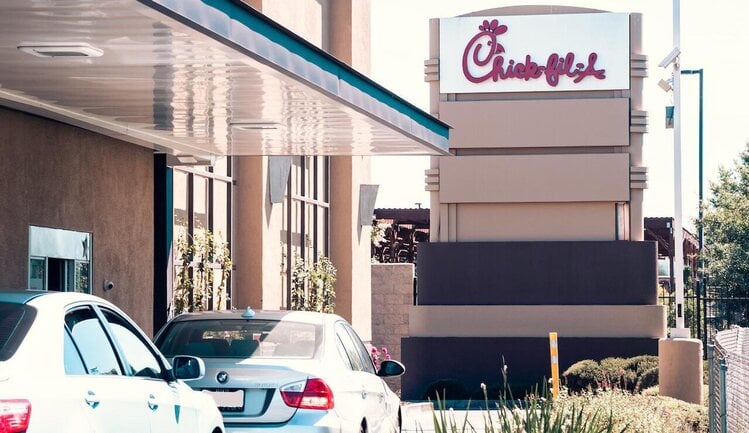
Chick-Fil-A has gradually built its reputation in the fast-food industry, and people continue to acknowledge its offerings. Whilst also managing to stay a fast-food industry leader, it is strongly dedicated to its authentic goal of delivering tasty recipes as well as outstanding customer service.
Since its inception in 1946, Chick-fil-A has achieved remarkable things. This franchise has established about 2,000 locations, generated $9 billion in sales in 2017, and ranks as a service leader in the industry. According to QSR Magazine, Chick-fil-A has the highest level of customer satisfaction among the other competitors.
It’s no great shock that Chick-fil-A is on the watch list of every aspirant looking to join a food and beverage franchise. Chick-fil-A franchisees are known as “operators,” and being one is not easy. It indicates that the company, not really the store owners, has control.
As a direct consequence, franchisees do not obtain or possess any shares in the company. Every year, Chick-fil-A gets more than 40,000 applications. With a franchise fee of just $10,000, this appears to be an incredible deal. However, Chick-fil-A franchise criteria are stringent, and the application process is long and complicated, resulting in a lower than 1% admission rate.
Pros and Cons of Chick-Fil-A Franchise
Pros
-
Solid organizational values
Enough has been published concerning the Chick-fil-A franchise culture. The fact that their establishments are shut on Sundays is only the starting point. The company is known to have traditional, religious values. When assessing a franchise investment, it is obvious that company values and corporate culture must be investigated.
-
The franchisor does the majority of the job
Chick-fil-A is the enterprise for you if you want an enterprise that controls itself and requires little engagement in back-office operations.
The franchisor handles the majority of the grunt work, such as selecting a site, acquiring property, financial backing, building projects, as well as buying the required equipment. Financial reporting, service and excellent interactions, general upkeep, and advertising are also overseen by the franchisor.
-
High Demand, Limited Supply
This is frequently the most secure method of establishing a prosperous business. Their overall gross sales might appear to be lower in comparison to other fast-food chains, and this is largely thanks to their limited locations. Because Chick-fil-A isn’t everywhere like numerous other fast food outlets, the limited stores generate a longing for it. Whenever there is scarcity, there will also be high demand.
Cons
-
A highly selective procedure
Obtaining a Chick-fil-A franchise is difficult. As per a Washington Post article, Chick-fil-A approves 100 to 115 licensees out of the 40,000 who apply each year. That implies that just 0.25 percent of aspirants are selected.
-
Control is lessened
With that kind of hands-on company, you would have much less oversight over how your business is managed. Even though this is fantastic for beginners, some might find it restricting and even dominating.
-
No Chick-fil-A multi-unit franchises
Although this is true for certain franchises, plenty will allow you to own multiple sites. Chick-fil-A doesn’t allow you to own multiple sites; each franchisee is only allowed one unit. Because you are restricted to just one position, this may result in lower profits.
-
Chick-fil-A franchisees must not be involved in any other businesses
The corporation prefers that its licensees be hands-on and dedicated exclusively to their Chick-fil-A franchise. Simply put, if you are a prolific business owner, this franchise is not for you. They don’t explain why, but one might draw the conclusion that the corporation isn’t interested in forming mega corporations and prefers quality rather than quantity.
-
Can’t choose the location
This implies that you won’t be able to pick your site. Chick-fil-A selects the site, buys the property, builds the eatery, as well as buys the equipment since the business wishes to retain control of the business.
-
Recent Negative Publicity
You may also encounter certain squabbles that already have harmed Chick-fil-A’s reputation. The owners’ views on gay marriage as well as charitable contributions to anti-LGBTQ organizations were made public. The chain faced a lot of negative press, demonstrations, and boycotts as a result of this.
Due to such considerations as well as bad attention, opening a Chick-fil-A might incur might not be such a good idea depending on your location. Even though the chain remains prevalent, several folks are still apprehensive to dine at the fast food place.
Conclusion
Potential franchise owners have numerous alternatives in the food and beverage franchise segment, some of which are financially viable and controllable.
Chick-fil-A is a standard and high franchise opportunity, and although it’s ideal for some, it may not be for everybody. If Chick-fil-A remains the correct franchise for you and you want to learn more, you can join one of their in-person briefing sessions. They hold lectures in various states across the country.
